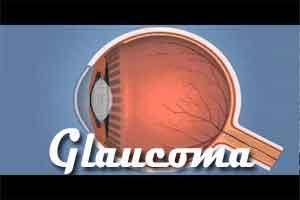- Home
- Medical news & Guidelines
- Anesthesiology
- Cardiology and CTVS
- Critical Care
- Dentistry
- Dermatology
- Diabetes and Endocrinology
- ENT
- Gastroenterology
- Medicine
- Nephrology
- Neurology
- Obstretics-Gynaecology
- Oncology
- Ophthalmology
- Orthopaedics
- Pediatrics-Neonatology
- Psychiatry
- Pulmonology
- Radiology
- Surgery
- Urology
- Laboratory Medicine
- Diet
- Nursing
- Paramedical
- Physiotherapy
- Health news
- Fact Check
- Bone Health Fact Check
- Brain Health Fact Check
- Cancer Related Fact Check
- Child Care Fact Check
- Dental and oral health fact check
- Diabetes and metabolic health fact check
- Diet and Nutrition Fact Check
- Eye and ENT Care Fact Check
- Fitness fact check
- Gut health fact check
- Heart health fact check
- Kidney health fact check
- Medical education fact check
- Men's health fact check
- Respiratory fact check
- Skin and hair care fact check
- Vaccine and Immunization fact check
- Women's health fact check
- AYUSH
- State News
- Andaman and Nicobar Islands
- Andhra Pradesh
- Arunachal Pradesh
- Assam
- Bihar
- Chandigarh
- Chattisgarh
- Dadra and Nagar Haveli
- Daman and Diu
- Delhi
- Goa
- Gujarat
- Haryana
- Himachal Pradesh
- Jammu & Kashmir
- Jharkhand
- Karnataka
- Kerala
- Ladakh
- Lakshadweep
- Madhya Pradesh
- Maharashtra
- Manipur
- Meghalaya
- Mizoram
- Nagaland
- Odisha
- Puducherry
- Punjab
- Rajasthan
- Sikkim
- Tamil Nadu
- Telangana
- Tripura
- Uttar Pradesh
- Uttrakhand
- West Bengal
- Medical Education
- Industry
Health Ministry sets up task force to combat glaucoma

New Delhi: A national task force has been set up by the Health Ministry to reduce the incidence of irreversible blindness caused due to glaucoma.
Glaucoma is caused when the optic nerve, which connects the eye to the brain, becomes damaged, and it is prevalent in the country and is the cause of 12 per cent of blindness seen in India, Dr Ramanjit Sihota, HOD of Glaucoma at AIIMS said.
“The aim is to train district ophthalmologists across the country on early diagnosis and appropriate management of glaucoma to prevent loss of vision. If detected and treated early on, blindness can be completely prevented,” Dr Sihota said.
There is lack of awareness in district ophthalmologists, especially in rural areas and thus it is necessary that they are trained and made aware about the importance of early detection, she said.
According to Chief of RP Centre for Ophthalmic Sciences, AIIMS, 50 per cent of people in India do not know they have glaucoma as it is generally asymptomatic. Also regular eye practise is not prevalent in India.
“It is a progressive eye disease which may lead to irreversible blindness, usually without warning, until it reaches an advanced stage. It is more prevalent among people over the age of 40,” Dr Sihota said.
The national task force comprises of four members – Dr Sihota, HOD of Glaucoma at Dr R P Centre, AIIMS, Dr Sushmita Kaushik from PGI, Chandigarh, Dr M D Singh from RML hospital and Dr Suneeta Dubey of Dr Shroff’s Charitable Eye hospital.
With the World Glaucoma Week on, the doctors stressed that people who are over 40 years, have a family history of glaucoma, are using steroids or are diabetic and hypertensive should go for a yearly eye check up when they go to change their glasses.
According to the World Health Organisation, glaucoma is the second leading cause of blindness in the world.


